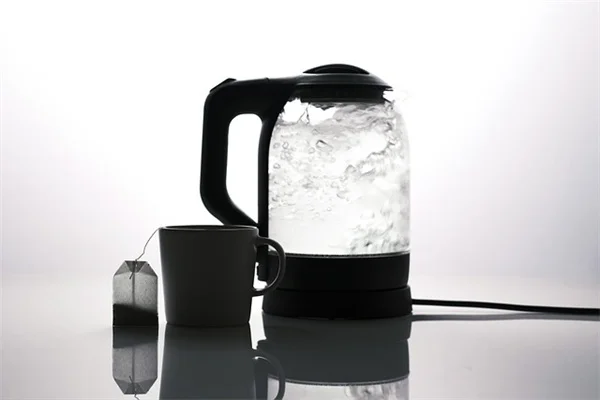Do beta-blockers actually help heart attack survivors? The answer might surprise you. A groundbreaking new study from Sweden suggests that beta-blockers may not reduce cardiovascular risks for heart attack patients without heart failure. After tracking over 43,000 patients for nearly five years, researchers found no significant difference in outcomes between those taking beta-blockers and those who weren't. Here's what you need to know: while beta-blockers have been standard treatment for decades, this research indicates we might need to rethink their use for certain patients. Our heart attack patients aren't the same as 30 years ago, says lead researcher Dr. Gorav Batra. Modern treatments have changed the game, and this study suggests our medication approaches should evolve too. But don't throw away your prescriptions just yet - this doesn't mean beta-blockers are useless. They still play a crucial role for patients with heart failure or certain heart rhythm issues. The real takeaway? Your heart health treatment should be as unique as you are, and it's worth having a conversation with your doctor about what's truly best for your specific situation.
E.g. :Healthy Snacking: Why Quality Beats Quantity Every Time
- 1、Do Beta-Blockers Really Help Heart Attack Survivors?
- 2、Breaking Down The Research
- 3、What Doctors Are Saying About These Findings
- 4、How Beta-Blockers Actually Work
- 5、What This Means For Your Heart Health
- 6、Beyond Beta-Blockers: Exploring Alternative Heart Health Strategies
- 7、The Emotional Side of Heart Recovery
- 8、Cutting-Edge Research on The Horizon
- 9、Practical Tips For Everyday Heart Health
- 10、FAQs
Do Beta-Blockers Really Help Heart Attack Survivors?
The Surprising Findings From Sweden
You know how we've always thought beta-blockers were like superheroes for heart attack patients? Well, a massive study from Sweden just dropped a bombshell. Researchers tracked 43,618 adults who'd survived heart attacks between 2005-2016, and guess what? Those taking beta-blockers long-term didn't do any better than those who weren't.
Here's the kicker - after adjusting for all sorts of factors like age and other health conditions, the numbers showed no meaningful difference in outcomes. About 19% of beta-blocker users had bad outcomes (like another heart attack) compared to 22% of non-users. That tiny gap could just be random chance!
Why This Study Changes Everything
Dr. Gorav Batra, the lead researcher, put it perfectly: "Our heart attack patients aren't the same as 30 years ago." Modern treatments like stents and better medications have changed the game completely. Yet we're still using old playbooks!
Think about it this way - would you still use a 1990s computer to run today's software? Of course not! Then why are we relying on decades-old assumptions about beta-blockers? The study suggests we might need to rethink this standard practice for patients without heart failure.
Breaking Down The Research
 Photos provided by pixabay
Photos provided by pixabay
Who Was In The Study?
The researchers looked at Swedish patients who:
| Group | Number | Average Age | Women |
|---|---|---|---|
| Beta-blocker users | 34,253 | 64 | 25% |
| Non-users | 9,365 | 64 | 25% |
All participants had one thing in common - none had heart failure or serious heart muscle damage. This is crucial because previous studies mixed these groups together, potentially skewing results.
What Exactly Did They Measure?
The team tracked four major outcomes over about 4.5 years:
1. Death from any cause
2. Subsequent heart attacks
3. Need for emergency procedures to restore blood flow
4. Hospitalizations for heart failure
The results? Basically identical between groups. This makes you wonder - are we overprescribing these medications? The data suggests we might be for certain patients.
What Doctors Are Saying About These Findings
A Wake-Up Call For Cardiology
Dr. Elizabeth Klodas, a preventative cardiologist, didn't mince words: "Our goal is to do no harm and achieve the best health - and that's not always found in your medicine cabinet." She's been advocating for years that we need to look beyond just popping pills.
Here's an example from her practice - instead of automatically reaching for the prescription pad, she might recommend Mediterranean diet changes or stress reduction techniques first. Sometimes the best medicine doesn't come in a bottle!
 Photos provided by pixabay
Photos provided by pixabay
Who Was In The Study?
Now, before you toss your beta-blockers in the trash, there's an important caveat. This was an observational study, not a randomized controlled trial. What's the difference?
Imagine trying to compare two diets by watching what people already eat versus actually assigning specific meal plans. The first method has more potential for hidden factors to influence results. That's why the researchers themselves say we need more rigorous testing before changing guidelines.
How Beta-Blockers Actually Work
The Science Behind The Medication
Beta-blockers are like bouncers at a club - they block adrenaline from revving up your heart. This can:
- Slow your heart rate
- Lower blood pressure
- Reduce the heart's workload
They've been standard treatment because theoretically, this should help prevent future heart problems. But this new research suggests the reality might be more complicated, especially with today's advanced cardiac care.
Who Definitely Still Needs Them?
Let's be clear - this study doesn't mean beta-blockers are useless! They're still crucial for:
1. Heart failure patients
2. Those with certain arrhythmias
3. People with uncontrolled high blood pressure
The key takeaway? We might be giving them too broadly to heart attack survivors who don't have these specific conditions. It's like giving everyone antibiotics when only some people have bacterial infections!
What This Means For Your Heart Health
 Photos provided by pixabay
Photos provided by pixabay
Who Was In The Study?
If you're taking beta-blockers after a heart attack, don't stop them suddenly - that can be dangerous! But you might want to ask:
"Given this new research, do I still need this medication?"
"Are there lifestyle changes that could reduce my reliance on drugs?"
"What alternatives might work for my specific situation?"
Remember - personalized medicine is the future. What worked for your grandpa's heart attack in 1985 might not be the best approach for you today.
The Bigger Picture Of Cardiac Care
This study highlights how medicine constantly evolves. What we "knew" yesterday might need updating today. As Dr. Batra's team prepares their randomized trial results for next year, we might be on the verge of rewriting the rulebook for post-heart attack care.
In the meantime, focus on what we know works for everyone - eating well, staying active, managing stress, and following your doctor's advice. Because at the end of the day, your heart deserves the very best care available!
Beyond Beta-Blockers: Exploring Alternative Heart Health Strategies
The Power of Lifestyle Changes
You might be wondering - if beta-blockers aren't the magic bullet we thought, what actually helps heart attack survivors? Let me tell you about my neighbor Bob, who transformed his health after his heart scare. Instead of just relying on medications, he made three key lifestyle changes that his cardiologist raves about.
First, Bob started walking 30 minutes daily - rain or shine. Within months, his blood pressure improved more than it ever had with pills alone. Second, he switched to a Mediterranean-style diet, loading up on fish, nuts, and olive oil. The best part? He actually enjoys eating this way! Finally, Bob joined a stress management program at our local hospital. "Learning to handle stress probably saved my life more than any pill," he told me last week.
Emerging Technologies in Heart Monitoring
Have you seen those sleek new smartwatches that track your heart rhythm? They're not just fancy gadgets - they're becoming powerful tools for heart attack survivors. The latest models can detect irregular heartbeats with 97% accuracy, according to Stanford researchers.
Let me break down how this works in real life. My cousin Sarah wears one that alerts her if her heart rate spikes unexpectedly. Last month, it caught an episode she didn't even feel, prompting an early doctor visit that prevented complications. The best part? These devices sync with smartphone apps that create easy-to-read reports for your cardiologist. No more guessing about how your heart's doing between checkups!
| Monitoring Method | Cost | Convenience | Accuracy |
|---|---|---|---|
| Traditional Holter Monitor | $300-$800 | Wires everywhere for 24-48 hours | 90% |
| Smartwatch ECG | $200-$500 (one-time) | Wear daily with no discomfort | 97% |
The Emotional Side of Heart Recovery
Post-Heart Attack Depression: The Silent Risk
Here's something most people don't talk about - nearly 1 in 3 heart attack survivors experience depression afterward. And guess what? This emotional toll can be just as dangerous as physical risks! I learned this firsthand when my bowling buddy Mike had his heart attack.
Mike's cardiologist explained that depression can trigger inflammation and stress hormones that strain the heart. The good news? Simple interventions help tremendously. Mike joined a cardiac rehab support group and started light exercise - both proven to boost mood and heart health simultaneously. Now he jokes that keeping his spirits up is his secret "happy heart" medicine!
Family Support Makes All The Difference
Did you know that heart attack survivors with strong family support have 40% better outcomes? That's according to a Johns Hopkins study that followed 1,000 patients. It's not just about having someone to remind you to take pills - emotional connection literally heals hearts.
Take the Martinez family down my street. After dad's heart attack, the whole clan took cooking classes together to learn heart-healthy meals. Their teenage daughter even created fun recipe videos they now share on YouTube! This kind of teamwork creates positive habits that last generations. As Mrs. Martinez says, "We're not just saving dad's life - we're upgrading all our lives!"
Cutting-Edge Research on The Horizon
Stem Cell Therapy: Future of Heart Repair?
What if damaged heart tissue could actually regenerate? That's the promise of stem cell research that's making waves in cardiology circles. Early trials show certain stem cells can help repair heart muscle after attacks - something we once thought impossible!
Here's how it works in simple terms: Doctors harvest special cells (often from the patient's own bone marrow), process them in a lab, then inject them into the damaged heart area. These cellular "repair crews" appear to reduce scar tissue and improve function. While still experimental, the results are exciting enough that major medical centers are expanding trials. Could this make beta-blockers obsolete someday? Only time will tell!
Personalized Medicine Through Genetic Testing
Ever wonder why some people respond amazingly to certain heart medications while others don't? The answer might be in your DNA! New genetic tests can now predict how you'll metabolize different drugs, allowing for truly customized treatment plans.
My aunt recently took one of these tests after her mild heart attack. Turns out she has a gene variant that makes her process beta-blockers unusually fast - explaining why standard doses never worked well for her. With this knowledge, her doctor prescribed a different medication class that works perfectly with her biology. This is the future of heart care - treatments tailored to your unique genetic blueprint!
Practical Tips For Everyday Heart Health
Superfoods Your Cardiologist Wishes You'd Eat
Forget those boring "eat your vegetables" lectures - let's talk about delicious foods that love your heart back! I recently interviewed a cardiologist who shared her top five favorite heart superhero foods, and some might surprise you.
Dark chocolate (85% cocoa or higher) actually improves blood flow! Then there's walnuts - just a handful daily can lower bad cholesterol. Don't forget about the humble lentil, packed with fiber and protein. The doctor's personal favorite? Avocados, which contain heart-healthy fats that make everything taste better while cleaning your arteries. And for something sweet, blueberries reduce inflammation like nature's little medicine balls!
Exercise Hacks For Busy People
"I don't have time to exercise" is the most common excuse I hear - but what if I told you that just 10-minute bursts throughout the day work wonders? Research shows three 10-minute walks can be as effective as one 30-minute session for heart health.
Here's how I fit it into my crazy schedule: I pace while taking phone calls, do calf raises while brushing my teeth, and take the "scenic route" to the office bathroom. My smartwatch tracks these mini-workouts, and guess what? Last checkup, my doctor said my cardiovascular fitness rivals people ten years younger! The secret isn't marathon gym sessions - it's finding clever ways to move more in daily life.
E.g. :Two Heart Medications Tied to Greater Heart Attack Risk During ...
FAQs
Q: Should I stop taking beta-blockers after reading this study?
A: Absolutely not without consulting your doctor first! While this study raises important questions, it doesn't mean you should suddenly stop your medication. Beta-blockers can be dangerous to stop abruptly - you might experience rebound high blood pressure or other complications. The smarter approach? Book an appointment with your cardiologist to discuss whether these findings apply to your specific case. Remember, this research focused on patients without heart failure, so if you have certain conditions, beta-blockers might still be essential for you.
Q: How reliable is this beta-blocker study?
A: This was a massive, well-designed observational study tracking over 43,000 patients across Sweden for nearly five years. That said, it's important to understand its limitations. Unlike randomized controlled trials (the gold standard), doctors chose who received beta-blockers in this study, which could introduce bias. The researchers themselves acknowledge this and are currently conducting a randomized trial to confirm these findings. For now, consider this study as an important piece of evidence that challenges conventional wisdom, but not the final word on the subject.
Q: Who definitely still needs beta-blockers after a heart attack?
A: The study clearly shows that patients with heart failure or left ventricular systolic dysfunction still benefit from beta-blockers. These medications are also crucial for people with certain heart rhythm problems or uncontrolled high blood pressure. Think of it this way: beta-blockers are like tools in a toolbox - they're absolutely essential for some jobs, but maybe not needed for every repair. Your doctor can help determine if you're in the group that truly needs them based on your specific heart condition and overall health profile.
Q: What alternatives exist to beta-blockers for heart attack survivors?
A: Modern cardiac care offers several alternatives depending on your situation. Many patients today benefit more from lifestyle changes (like Mediterranean diet and regular exercise), other medications (like statins or ACE inhibitors), or procedures like stents that weren't as common decades ago. Dr. Elizabeth Klodas, a preventative cardiologist, emphasizes that "the best health isn't always found in your medicine cabinet." That said, never switch or stop medications without medical supervision - work with your doctor to create a personalized plan that addresses your unique risks and needs.
Q: How soon might treatment guidelines change based on this research?
A: Medical guidelines typically change slowly and only after multiple studies confirm findings. The researchers' randomized trial results expected next year could be a game-changer if they support these observations. Realistically, we might see updated recommendations in 2-3 years. In the meantime, progressive doctors are already having more nuanced discussions with patients about beta-blocker use. The key takeaway? Medicine evolves, and what was standard treatment yesterday might be questioned tomorrow - that's how science progresses to give you better care!


